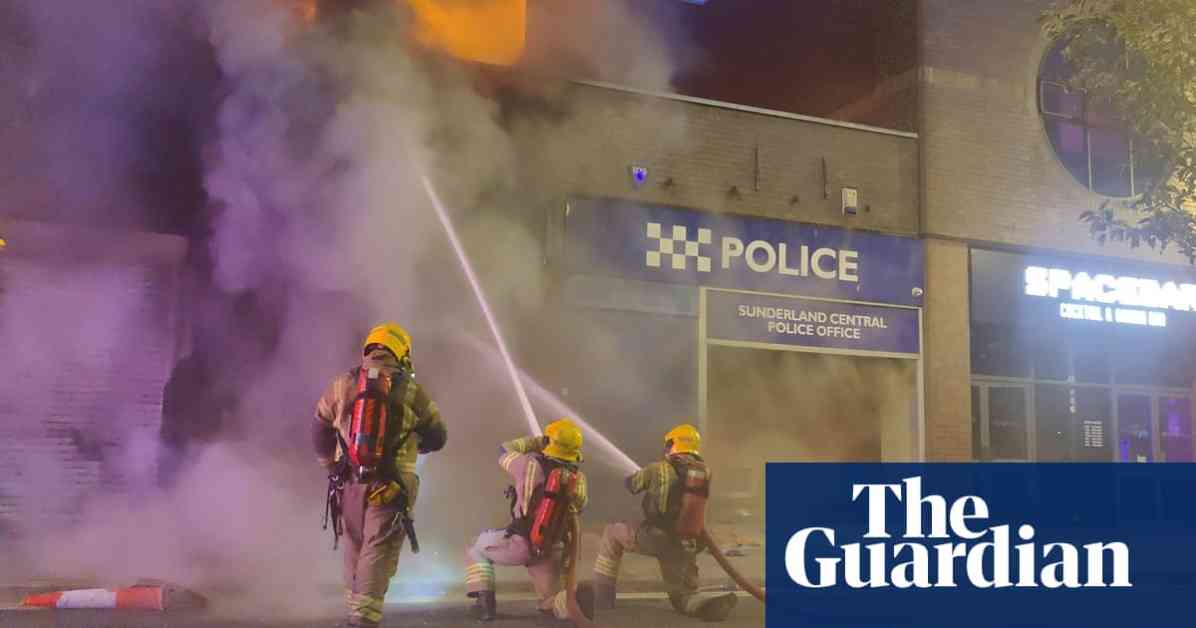Eight individuals have been arrested in Sunderland for various offenses, including violent disorder and burglary, following a night of rioting and unrest in parts of the UK. Three police officers sustained injuries and were taken to the hospital, according to Northumbria police.
During the chaos, at least one building was set on fire, and a car was overturned and set ablaze as police struggled to control a crowd of several hundred protesters. Some of the protesters were wearing balaclavas, and others were draped in the England flag. Police officers were targeted with beer cans and stones in the city center and near a mosque on St Mark’s Road.
Reports indicated that a police building had been set on fire, but later information suggested that an adjacent building was actually the one set alight. Rioters also set off fire extinguishers against officers.
The protests, which had been promoted by far-right activists on social media, began at the newly refurbished Keel Square. Videos shared on social media showed young men hurling stones at police and chanting slogans like “whose streets? Our streets” along with Islamophobic remarks.
The unrest in Sunderland was part of a series of planned protests across the UK following the knife attack in Southport, fueled by misinformation circulating on social media about the suspect. Home Secretary Yvette Cooper condemned the violence, stating that those instigating disorder will face consequences for their actions.
Extra prosecutors were called in to handle potential legal cases stemming from the violent incidents, with a focus on swift justice. Authorities emphasized that criminal behavior will not be tolerated and that law enforcement has the government’s full support in maintaining order.
Political figures and community leaders expressed their dismay over the violence that erupted in Sunderland. Calls for unity and condemnation of hate-based violence were echoed across various statements, emphasizing the need to address rising levels of Islamophobia and challenge divisive ideologies.
In Liverpool, far-right protesters were outnumbered by anti-fascist groups, with police intervening to prevent scuffles. The presence of law enforcement helped maintain a semblance of order, and the majority of protesters dispersed peacefully.
Hope Not Hate highlighted the planned protests across different UK cities over the weekend, driven by anti-multiculturalism, anti-Muslim, and anti-government sentiments. The organization identified various locations where demonstrations were set to occur, underscoring the need to address underlying issues fueling unrest.
As communities grapple with the aftermath of these disturbances, a collective call for peace, justice, and unity emerges. The incidents serve as a stark reminder of the importance of upholding social cohesion, combating bigotry, and fostering dialogue to prevent further outbreaks of violence. The shared responsibility to safeguard public safety and uphold the values of tolerance and respect remains paramount in the face of division and discord.












